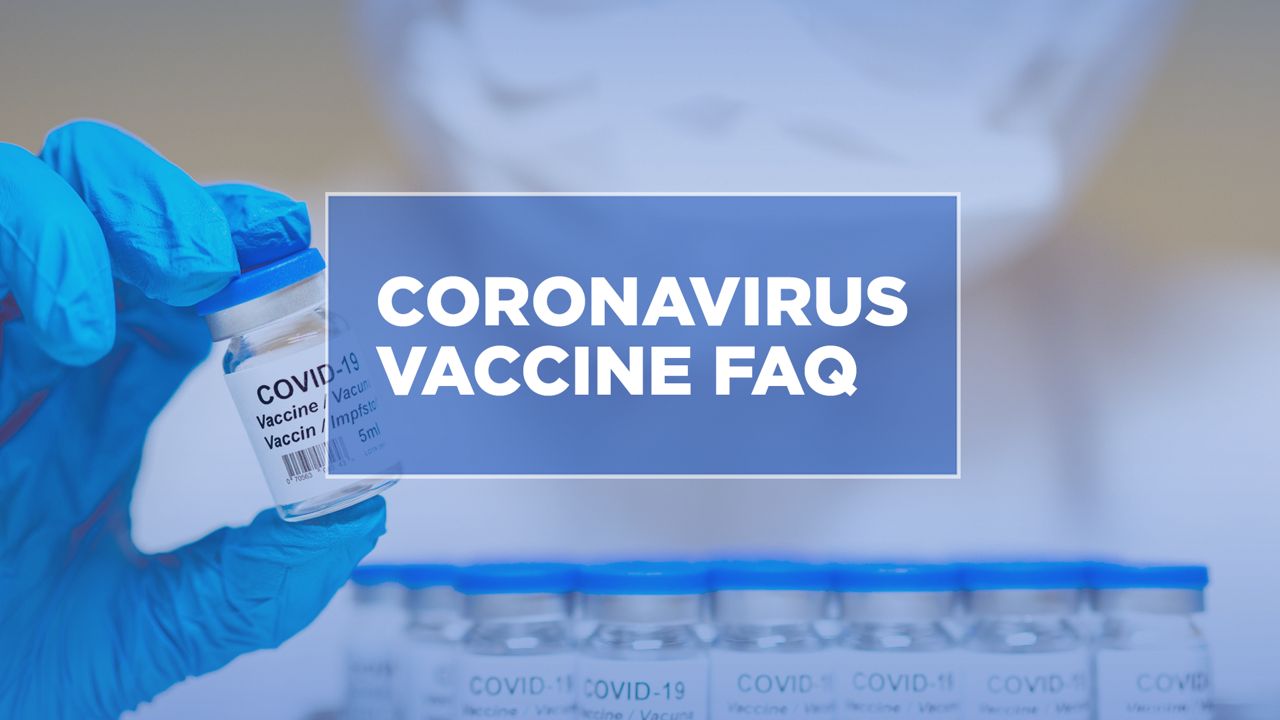New Yorkers are now receiving vaccines against COVID-19, and the state recently expanded eligibility rules for who can receive them. Already, health care workers and residents and staff of certain long-term care facilities are eligible to receive the vaccine. As of Wednesday, Jan. 13, 7 million people in the state were eligible to receive the vaccine.
Here are answers to some of the common questions:
When will a vaccine be available for me?
Under the latest phase of the vaccine rollout, 1B, the largest group that is now eligible is state residents 65 years old and older, after Gov. Andrew Cuomo expanded the eligibility in early January.
Also eligible are public safety workers — police officers and firefighters — as well as teachers, correction department staffers, public transportation workers, public-facing grocery workers, in-person college instructors and people who live or work in certain homeless shelters.
Here's a breakdown of the expected distribution plan.
Where will I be able to get a vaccine?
New York has organized state-run sites, and counties have their own locations for vaccine distribution. Each site has separate appointment websites, but the same individuals qualify to be vaccinated at all sites.
Currently, New York is distributing the Pfizer and Moderna vaccines, which both require two doses. Individuals must get their second dose from the same location.
Is it safe?
The FDA is in charge of the approval process. The guidelines they put forth for the COVID-19 vaccines under development and in trials must follow the same rigorous safety rules as any other new vaccine.
New York, along with a handful of states, has also set-up an expert panel to independently review any COVID-19 vaccine before it is distributed.
How does it work?
The vaccines work by tricking the body into creating an immune response for a virus that is not present in the body.
New York City Health Commissioner Dr. Dave Chokshi said the vaccine does not affect or interact with a person’s DNA but teaches the body how to build immunity against the novel coronavirus.
He said it is moderately effective after the first 10 to 14 days of vaccination, but that the second dose is critically important, as it is what is needed to achieve 95% effectiveness in fighting the virus.
Are there any side effects of the vaccine?
No serious safety concerns have been found for either vaccine. Each vaccine has shown only minor side effects, such as injection site pain, fatigue and headache.
However, after the United Kingdom’s rollout of the vaccine this week, health authorities there are advising people with a "significant history of allergic reactions" to not be given the Pfizer/BioNTech coronavirus vaccine. It comes after two health care workers, who both carried an adrenaline auto injector and had a history of allergic reactions, “responded adversely” to their shot.
What will it cost?
The COVID-19 vaccine will be free for all Americans, according to the Centers for Medicare and Medicaid Services.
But you may still receive a bill. Providers can legally charge an administration fee for giving the shot to patients, according to the CDC. You can file a claim with your insurance company, however, since they're required to cover approved preventive care under the Affordable Care Act.
New York state has ordered all insurance companies cover all vaccine-associated costs.
Will the vaccine be mandatory?
No. There are no plans or discussions at this time to make the COVID-19 vaccine mandatory by either state or local leaders.
Can fully vaccinated Americans gather without masks or social distancing
Americans who have been fully vaccinated – meaning they're two weeks past receiving their second dose of the Pfizer or Moderna vaccines or two weeks past receiving the single-shot Johnson & Johnson vaccine – can gather in small groups with other vaccinated people without social distancing or wearing masks.
According to the CDC, fully vaccinated people can:
- Visit other fully vaccinated people indoors, without social distancing or wearing masks
- Skip quarantine and testing if exposed to someone with COVID-19, but do not show symptoms
- Visit with unvaccinated people from a single household without social distancing or wearing masks, as long as the unvaccinated people are not at high risk for severe disease
However, the CDC still recommends that vaccinated Americans continue to wear masks in public, avoid large gatherings, and avoid travel, even to see vaccinated family members.


